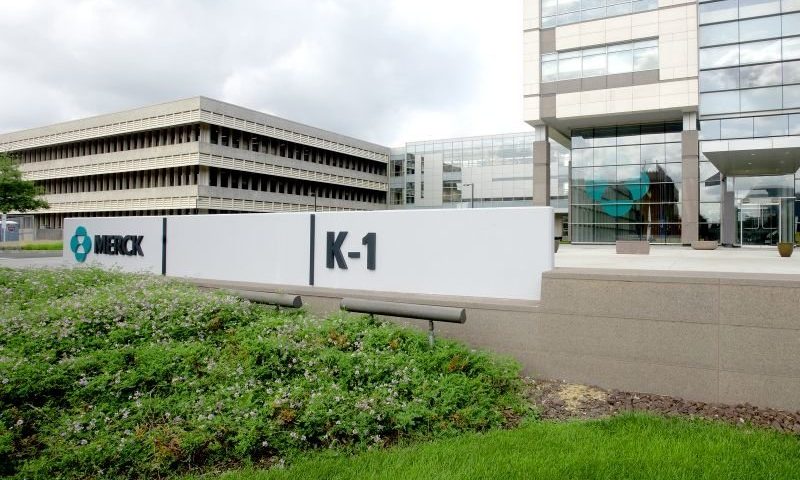The addition of Merck’s new oral pill to a cocktail of approved medicines for HIV-1 produced a viral response comparable to common treatments including antiretroviral therapies in two phase 3 trials, moving the pharma closer to a regulatory filing for a new way to treat the stubborn virus.
Merck tested its approved treatment Pifeltro in combination with the investigational drug islatravir in adults with HIV-1 infection. Pifeltro, also known as doravirine, snagged FDA approvals as a single treatment and as a combo known as Delstrigo with other HIV drugs from GlaxoSmithKline’s ViiV Healthcare and Gilead Sciences in August 2018.
Islatravir works by blocking an enzyme involved in viral replication, referred to as reverse transcriptase.
One of the phase 3 trials had 672 patients who either continued on their existing antiretroviral therapy (ART) or switched to Merck’s combined treatment for 48 weeks. At that point, Merck’s pill met the main goal of the trial, which was antiviral efficacy comparable to ART, the company said Monday.
From week 48 to week 96, all patients received Merck’s combined treatment in the study, dubbed Illuminate Switch A. The trial is estimated to end in September 2022, according to ClinicalTrials.gov.
A second late-stage trial had 641 patients either continue on a three-drug regimen or switch to Merck’s investigational combination through 144 weeks. Again, at 48 weeks, the Merck therapy was successful in showing antiviral efficacy comparable to a combination of bictegravir, emtricitabine and tenofovir alafenamide. That trial, named Illuminate Switch B, is set to wrap up in August 2023. Gilead markets a combo of bictegravir, emtricitabine and tenofovir alafenamide known as Biktarvy.
Safety in the latest trials was consistent with previous midstage studies of the combo, Merck said.
More detailed data will be presented at an unnamed scientific congress. The results will set up the combination treatment for global regulatory filings, the New Jersey Big Pharma said Monday.
Joan Butterton, M.D., Merck’s vice president of global clinical development for infectious diseases, said the pharma will continue to study doravirine and islatravir “in diverse populations of people living with HIV.”
Merck also unveiled phase 2b results for a combined treatment of Pifeltro and islatravir in patients with HIV-1 who had not previously received treatment for the virus. The combo maintained suppression of viral load by keeping levels of HIV-1 under a certain threshold across all three dose levels at week 144, the company said Wednesday.
Overall, 65 out of 90 patients, or 72.2%, on the two-drug treatment were able to achieve viral loads less than 50 copies/ml. That figure was similar to the percentage of patients who received Pifeltro in combination with other approved HIV treatments. In that group, 77.4%, or 24 out of 31 patients, had viral loads under the threshold.
The findings are encouraging and “further support the potential” of the two-drug regimen, Butterton said in a statement Wednesday.
Islatravir is in multiple other (PDF) mid- and late-stage clinical trials, including phase 3 studies investigating the drug as a preventive treatment for HIV, more commonly known as PrEP, or pre-exposure prophylaxis.
Merck isn’t the only Big Pharma looking to edge out long-time PrEP leader Gilead. The FDA will decide on GlaxoSmithKline’s long-acting PrEP drug cabotegravir by Jan. 24, the company said last month. The drug is part of an approved combination treatment for HIV with Johnson & Johnson’s rilpirivine, together under brand-name Cabenuva. If the FDA gives it the green light, the drug could be the first long-acting PrEP treatment and would go up against Gilead’s oral PrEP drugs Truvada and Descovy. Truvada is now sold as a generic, too.
Merck is also teaming up with Gilead to test islatravir with the California Big Pharma’s injectable HIV-1 treatment lenacapavir, which is administered every six months. Gilead asked the FDA for approval of lenacapavir in June. The European Medicines Agency is also evaluating the drug for a potential regulatory nod as of August.

